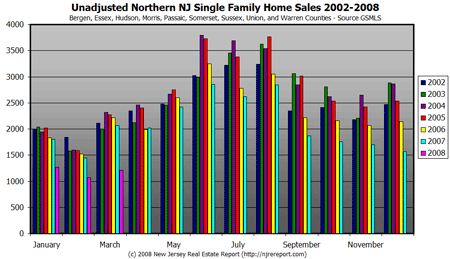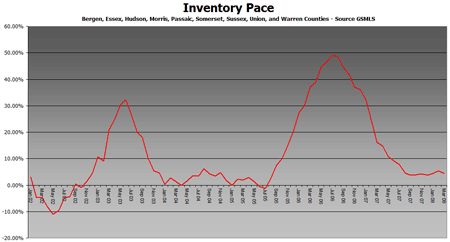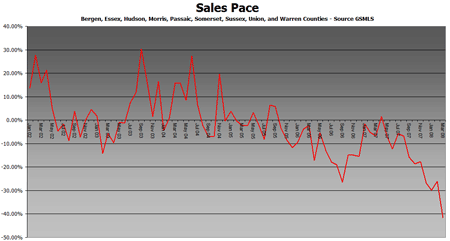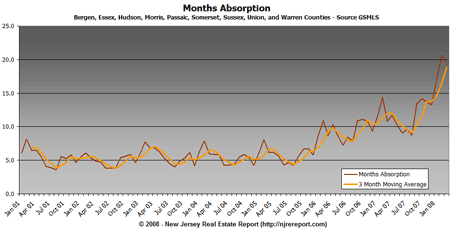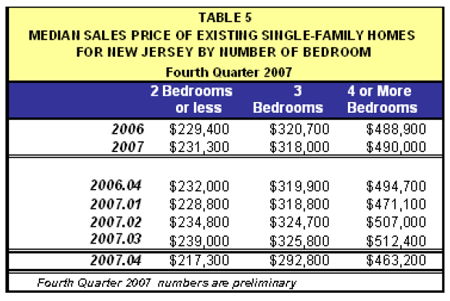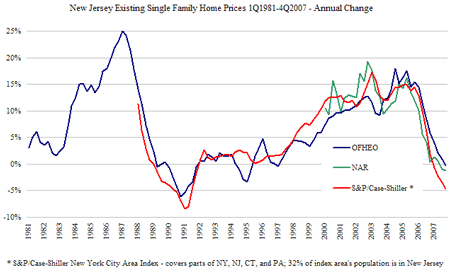Nice timing from the WSJ:
Real-Estate Market Slump
Continues Despite Forecasts
For everyone struggling to sell their homes in a terrible market, the latest forecast may offer some comfort. The National Association of Realtors says sales of “existing” homes, by which presumably it means used homes, are showing signs of stabilizing. It suggests we have passed the bottom of the market, and are likely to see an “upturn” in the second half of the year, with home sales “improving notably.”
The only problem: That’s what they’ve been saying for most of the past two years, while the market has continued to slump.
In March 2006, the realtors’ association announced signs the market was “stabilizing,” and promised “price appreciation should return to more normal rates of growth this year.” The chief economist, David Lereah, said “this looks like we’re touching down for the soft landing we’ve been expecting.” Ah yes, the soft landing.
Since then the association has reassured us prices would remain on a “high plateau” (April, 2006), were “entering a period of equilibrium” (May, 2006), were about to “return to normal” (June, 2006), were “stabilizing” and should “hold fairly steady” for the rest of the year (August, 2006), “should return to positive territory within a few months” (September, 2006), were “stabilizing” again (November, 2006) that there had at long last been “a turn in the market” (December, 2006).
We were told used home sales would “gradually rise through 2007” (January, 2007), that a “recovery is likely this year” (March, 2007), the market “may be stabilizing” yet again (June, 2007), would see a “gradual upturn becoming more pronounced by the end of the year,” (June, 2007), was “expected to recover in 2008” (July, 2007), was “likely to stabilize” again (August, 2007), was “beginning to rebound” (September, 2007), was “likely stabilizing” again (November, 2007), and would “trend up in 2008” (December, 2007). Now we’re told it’s stabilizing.
Doesn’t exactly inspire confidence, does it?
Yes, at some point the market really will stabilize. Obviously a broken watch is going to be right eventually. But you can’t rely on it to tell the time.


